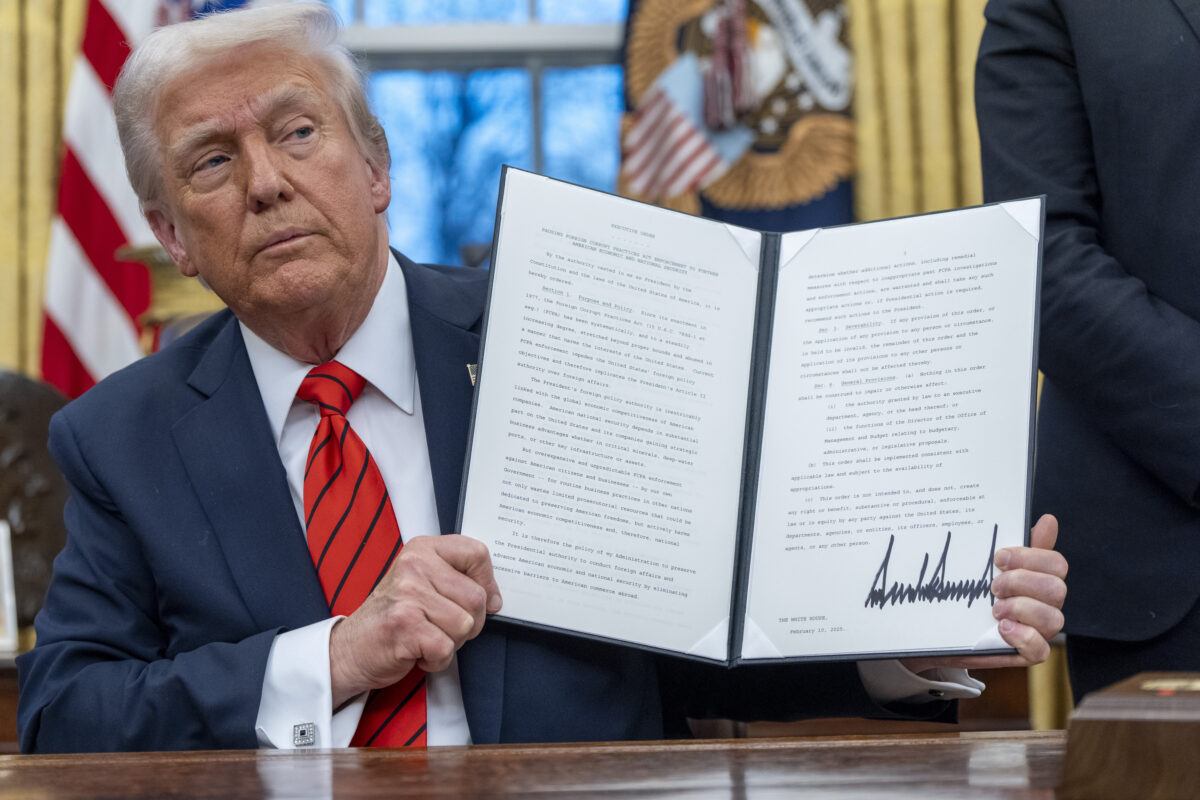Federal Judge Nukes Trump Admin Motion to Disqualify Her as Nothing More than ‘Speculation, Innuendo,’ and Attempt to ‘Attack the Messenger’

AP Photo/Alex Brandon
The federal judge presiding over the lawsuit filed by the Perkins Coie law firm against President Donald Trump’s executive order targeting them denied a motion by the Trump administration to disqualify her, using stern language to reject their arguments as a meritless attempt to “attack the messenger.”
Experienced litigators know that filing a motion to disqualify a judge is a risky move, as judges have broad discretion to reject such motions. Unless it’s a very clear cut case — for example, if the judge’s spouse works for one of the parties or the CEO of one of the parties gave $3 million to a PAC that helped elect the judge — appellate courts are going to slam their doors in the face of anyone trying to challenge the judge’s ruling.
The trouble then comes as that judge is still presiding over your case for the duration, after you have openly questioned the judge’s ethics and impartiality.
“Even when warranted, a motion to disqualify is unlikely to be favorably received,” says Bloomberg Law’s article in its “Practical Guidance” series on these federal motions. “If you file one, fully understand the odds and the possible outcomes. Federal judges have a lot of power, and a smart, angry judge can hurt your case in ways that are almost beyond appeal, so it is best to proceed with great caution.”
The litigation here arose after Trump issued an executive order on March 6 attacking the “dishonest and dangerous activity of the law firm Perkins Coie LLP,” with directives that included revoking any active security clearances for Perkins Coie attorneys (critically important in certain types of federal cases), terminating any federal contracts with the firm, and barring firm employees from federal buildings. Perkins Coie has represented Democratic clients like Hillary Clinton and other top Trump foes.
The firm filed a complaint challenging the executive order and U.S. District Court Judge for the District of Columbia Beryl Howell issued a temporary restraining order earlier this month barring the enforcement of part of the executive order, essentially putting a pause button on such actions by the Trump administration going after Perkins Coie while the parties fight it out in court.
The White House fired back with a motion to disqualify Howell arguing that she had shown a “systematic” bias and “disdain” for Trump. On Wednesday Howell issued her ruling with a sharp rejection of their arguments, dissecting their lack of merit in detail.
“Though this adage is commonplace, and the tactic overused,” the opinion began, “it is called to mind by defendants’ pending motion to disqualify this Court: ‘When you can’t attack the message, attack the messenger.'”
Howell excoriated the attorneys from Trump’s Department of Justice for engaging in a “rhetorical strategy of ad hominem attack,” creating a situation where “the stakes become much larger than only the reputation of the targeted federal judge.” The DOJ’s strategy, Howell wrote, was “designed to impugn the integrity of the federal judicial system and blame any loss on the decision-maker rather than fallacies in the substantive legal arguments presented.”
In another dig at the DOJ attorneys she called their motion something that “sounds like a talking point from a member of Congress rather than a legal brief from the United States Department of Justice” and that “reflects a grave misapprehension of our constitutional order.”
Howell wrote about the importance of the “independent judiciary that adheres to an impartial adjudication process, without being swayed merely because the federal government appears on one side of a case and the President wishes a particular result.” Accordingly, the Trump administration’s motion to disqualify her relied merely on “speculation” and “innuendo,” showing a “clear absence of any legitimate basis for disqualification.”
In a lengthy factual section, Howell knocked down the Trump administration’s gripes about various past rulings she had made, including, somewhat humorously, a decision related to a grand jury matter that “could have remained under seal, literally forever, but for the fact that President Trump himself asked for the decision to be unsealed for his use in support of his motion to dismiss the criminal indictment pending against him in the Southern District of Florida.”
“As this case continues,” Howell concluded, “the parties will have the opportunity to present relevant evidence and legal arguments, which will receive full, fair, and impartial consideration, as does every case before this Court. To the extent the parties disagree with the final judgment entered, the normal judicial process of appeal applies.”
New: The Mediaite One-Sheet "Newsletter of Newsletters"
Your daily summary and analysis of what the many, many media newsletters are saying and reporting. Subscribe now!






Comments
↓ Scroll down for comments ↓